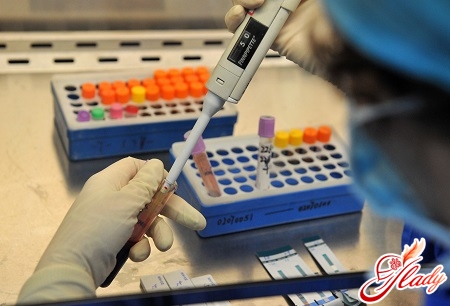
Cancer is a malignant tumor thatbegins its development, disrupting the body as a whole. It is characterized by uncontrolled proliferation, penetration into other tissues. Cancer of the bladder to date can not be called a rarity, as the cause of its appearance can serve even a long contact with conventional cleaning agents. Treatment can be different. Here it is taken into account at what stage the cancer was diagnosed, which form it is observed. At detection at an early stage treatment in most cases successful, but if the disease is started, the forecasts are the most negative.
Causes of cancer
This malignant tumor affects firstthe mucous membrane of the urinary bladder, then the walls, beyond the boundaries of the muscle layer. Most often, cancer cells appear on the inner surface, this is about 90% of the cases. But if you do not keep track of your condition, then the cells gradually expand, the bladder begins to rot literally from within. In order for the treatment to be effective, it is necessary to undergo diagnostic services on time, to perform all the doctor's prescriptions after determining the form and stage of the disease. The reasons for the development of cancer of the bladder is not so much, most often this:
- In smokers, cancer is observed approximately twice as often as in others. There is a fairly high probability of recurrence.
- long-term contact with dyes, washingsubstances, aniline, benzene and others. Bladder cancer is most often observed in workers of dry cleaners, chemical industry, dentists, hairdressers;
- previous chemotherapy, radiotherapy;
- chronic cystitis;
- in the presence of a urinary catheter for a long time (with diseases such as damage to the spinal cord, for example);
- heredity.

Forms of the course of the disease and symptoms
Symptoms of bladder cancer can be very different. There are several forms of manifestation of such a disease:
- carcinoma, or transitional cell carcinoma. This form is the most common, it occurs in about 90 percent of cases;
- squamous cell carcinoma is less common. It is caused by the fact that the bladder was previously strongly affected by cystitis, that is, inflammation;
- rare forms, such as lymphoma, adenocarcinoma, small cell carcinoma and others.
Symptoms of cancer can be different, among them:
- frequent urination, which starts to bother;
- the presence of blood in the urine. Such symptoms are an incentive to an urgent examination. Often the appearance of blood goes along with pain;
- with micturition there is a strong and sharp pain before and after;
- it is necessary to take into account such symptoms asweakness, increased fatigue, a sharp and unreasonable weight loss, an increase in temperature to about 37.5 degrees. Such symptoms may be signs of other diseases, not such serious ones, but if the above-mentioned phenomena are observed together with them, then it is necessary to undergo an emergency examination without delay;
- if metastases have already appeared, then symptoms such as shortness of breath, jaundice are observed.
If you have all of the listedsymptoms, and you are at risk, then you need to urgently make an appointment with a urologist, undergo a diagnostic examination. Often the timely access to the doctor allows you to completely overcome the disease at an early stage.
Diagnostic Methods
The main sign that the bladder is affectedcancer, is the presence of blood in the urine. If you notice that you have a blood discharge when you visit the toilet, this is an urgent reason to go to the hospital. Diagnosis of bladder cancer can be carried out using such methods:
- the analysis of urine, allowing to define in urine signs of inflammatory process, cancer cells. Such an analysis is called cytology;
- cystoscopy, when through the urethraA thin tube is inserted into the bladder, at the end of which the camera is installed. This allows you to examine the condition of the bladder in detail, see the affected areas;
- Ultrasound examination can correctly determine why there is blood in the urine. It can be causes such as stones, swelling, kidney cancer;
- computed tomography is performed toclarification of tumor size, the presence of metastases, lesions of lymph nodes. In the blood, a special contrast substance is introduced, which allows us to examine the urinary tract;
- analysis for markers. This method is used for relapses of the disease.

Stages of the course of the disease
Bladder cancer, depending on the complexitythe course of the disease is divided into separate stages: 0 stage means that cancer cells were found in the bladder, but they did not spread throughout the body. This stage is usually divided into 0a and 0is:
- 0a, or papillary non-invasive carcinoma. This is a germination in the lumen, but the absence of germination in the walls of the bladder. Lymph nodes are not affected;
- 0is, or carcinoma in situ. It is a tumor that does not germinate into the walls, the lumen of the bladder, the lymph nodes are not affected.
The prognosis of treatment is 82-100%, that is, it is quite high.
- Stage 1 is a bladder cancer thatbegins to spread more deeply into the muscle layers, but the fatty tissue is not affected, there is no complete germination. If treatment is started on time, then the percentage of elimination of the disease is 82-100%.
- Stage 2 is bladder cancer, which is alreadyis distributed in the muscular layer of the organ. The probability that the disease will be cured with the timely start of taking medication and procedures is only 63% to 83%.
- Stage 3 occurs when the tumor sproutsthrough the wall, adipose tissue, often it already extends to the seminal vesicles, the prostate, the vagina or the uterus, but the lymph nodes are not yet affected. The prognosis for recovery is low, from 17% to 53%.
- Stage 4 is a bladder cancer in whichthe tumor strongly spreads to other organs, gives metastases to the lungs, the liver. Forecasts for cure are extremely low, the likelihood that the life expectancy with such a disease will be more than five years - only 20%.

Treatment of cancer
Cancer treatment can be different. Everything depends on the stage of the disease, the general condition of the patient, age and many other reasons. Treatment may include surgery, when tissues are simply removed, radiotherapy (irradiation of the affected area), chemotherapy (taking special medicines). Treatment of stage 0 depends on the size that the tumor has, on its behavior, growth rate, growth direction (in the wall of the bladder or in the lumen). Cancer of this stage can be treated by the following methods:
- transurethral resection, that is, removal of the tumor through the urethra. In this case there are no external incisions completely, there are no scars on the skin;
- use of the BCG vaccine administereddirectly inside the bladder. This allows the patient's immune system to fight the tumor independently, the cancer cells are gradually being destroyed. This method of treatment not only allows you to get rid of cancer without the need for surgery, but also reduces the risk of relapse by about half, which is an excellent result;
- Chemotherapy is a treatment with special anti-cancer drugs that are injected into the bladder cavity;
- Cystectomy is a radical treatment thatIt involves removal of the entire bladder if several foci of tumors are found in it. At the zero stage this method is required extremely rarely, usually by medicines.
The prognosis of treatment at this stage isthe performance of all necessary actions is good, it reaches 98% for complete recovery. But even at this stage, bladder cancer can recur, so you should visit a visiting doctor on a regular basis. The treatment of cancer of stage 1 is practically no different from the methods for the zero stage. You can use drugs that are injected into the bladder. The cases of recurrence of the disease in this case are approximately twice as large, cystectomy is usually prescribed. Treatment of stage 2 cancer in almost all cases involves surgical intervention, that is, removal of the bladder. At this stage, the tumor penetrates into the neighboring pelvic organs, so removal can also affect them. In women, the ovaries, the uterus, the fallopian tubes, the anterior part of the vagina, and the prostate gland are removed. Many specialists recommend immediately removing the lymph nodes of the small pelvis, as it is possible to develop a new cancerous focus. After the surgical intervention, chemotherapy is prescribed, which allows to minimize the risk of developing metastases. Treatment of cancer in stage 3 also involves removal of the bladder, lymph nodes and nearby organs. Before and after the operation, a chemotherapy course is mandatory. Treatment of cancer of the 4th stage is the most difficult. In this case, the area of distribution is very extensive, surgical intervention is conducted only in order to slow the disease, to stop its development. Among the main methods that are used for such treatment are the following:
- radiotherapy, or irradiation. This method is used in the event that the tumor has not yet metastasized into the nearby organs - the liver, bones, lungs, etc .;
- chemotherapy, that is the use of special medicines. This method can be administered simultaneously with radiotherapy, it is used when metastases have already penetrated into other organs.

What are relapses?
Even if the cancer has been completely cured, it is possiblethe resumption of the disease, which is called relapse. It happens quite often. Therefore, it is necessary that all patients regularly visit the supervising urologist, undergo an appropriate examination. After curing in the first two years, preventive examinations are required, which are performed every 3-6 months depending on the complexity of the disease, risk factors. Relapse can occur only a couple of months after the cure, but maybe in a few years. Therefore, continuous monitoring is recommended, it can not be neglected. It must be remembered that the earlier relapse occurs, the more difficult the disease will be, the treatment of such a cancer is difficult, in some cases an incurable stage is diagnosed. Relapse can occur not only in the bladder, but also in other organs, it is almost impossible to forecast. The treatment process will depend on the severity of the disease, the extent of the spread of cancer. If there is repeated cancer of the bladder, and the severity of the disease is high, then a cystectomy is necessary - complete removal of the organ. If the cancer is manifested elsewhere, then chemotherapy is prescribed, surgical intervention is performed only in difficult cases. Malignant bladder tumor is a dangerous disease, from which no one is immune. It manifests itself in the appearance of a malignant, growing tumor, which affects not only this organ, but also other tissues of the body. The disease requires compulsory treatment, constant supervision of the urologist. In addition to drug treatment, in some stages, surgical intervention is prescribed, involving the removal of affected tissue, nearby areas if there is a threat of spread.









